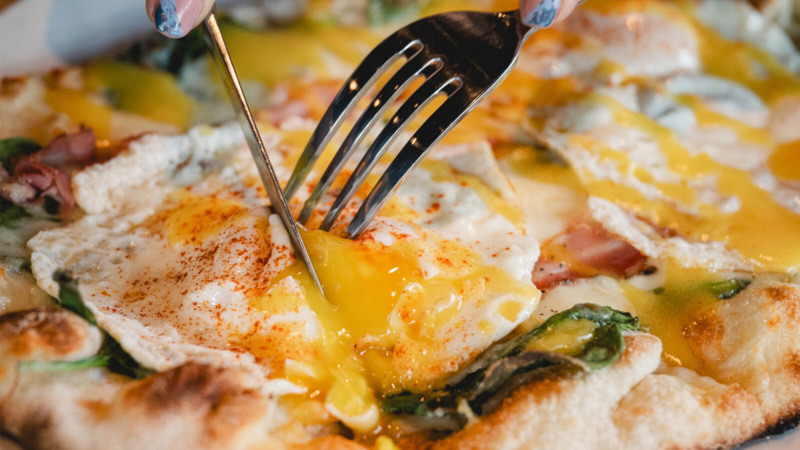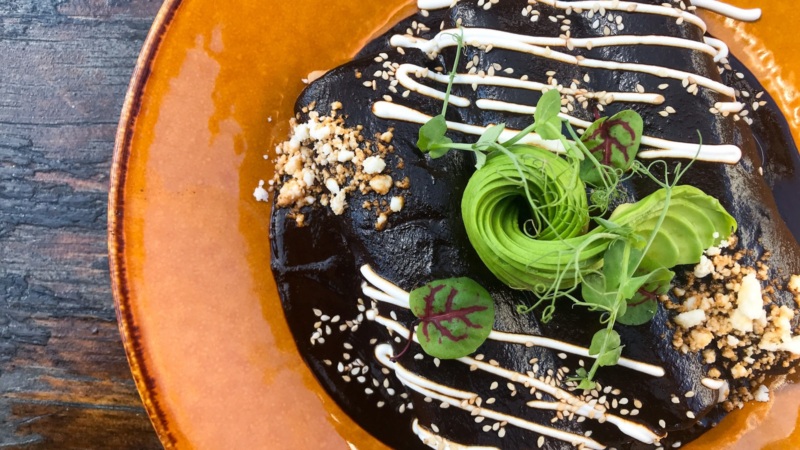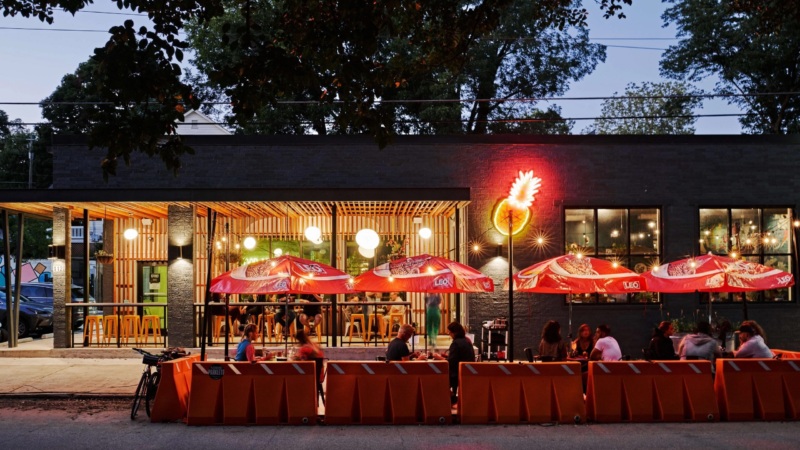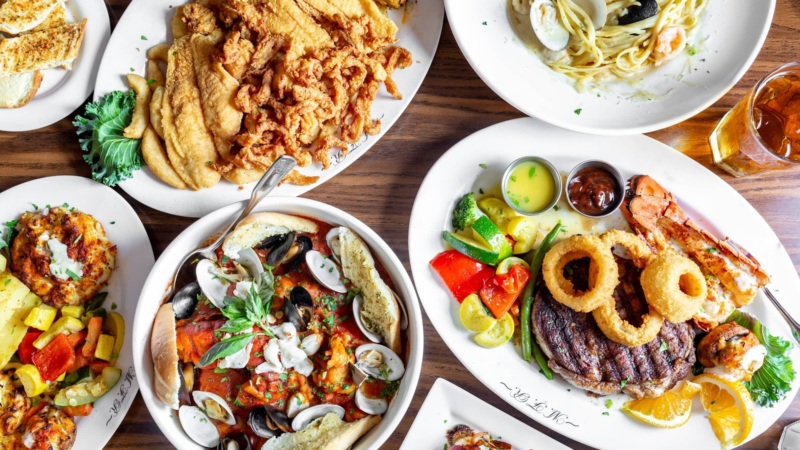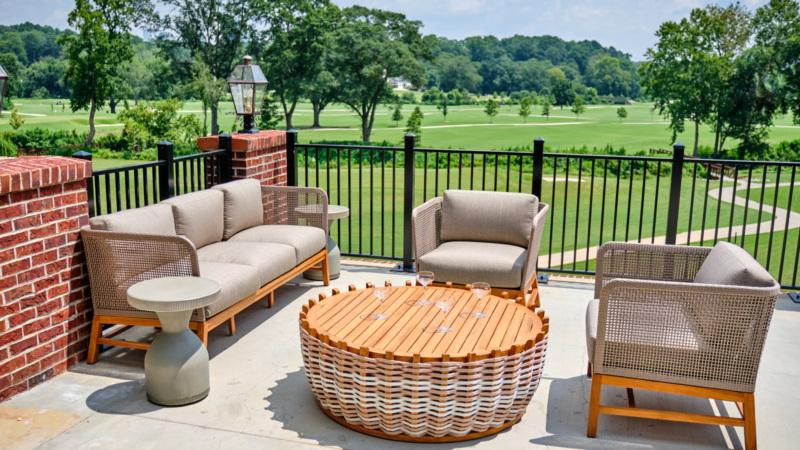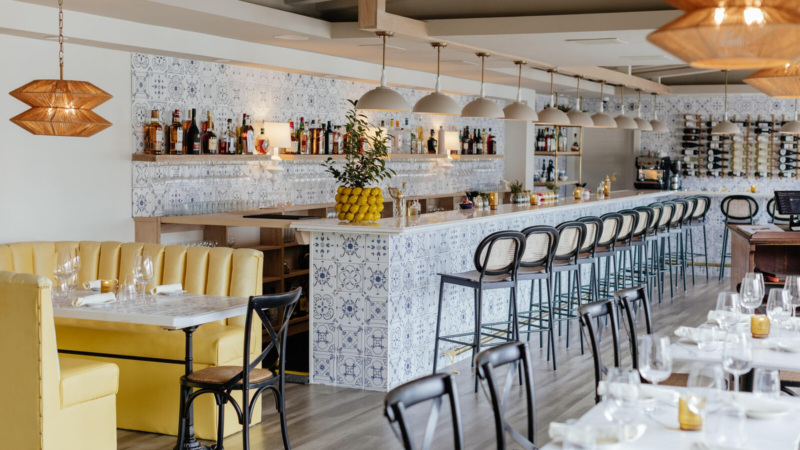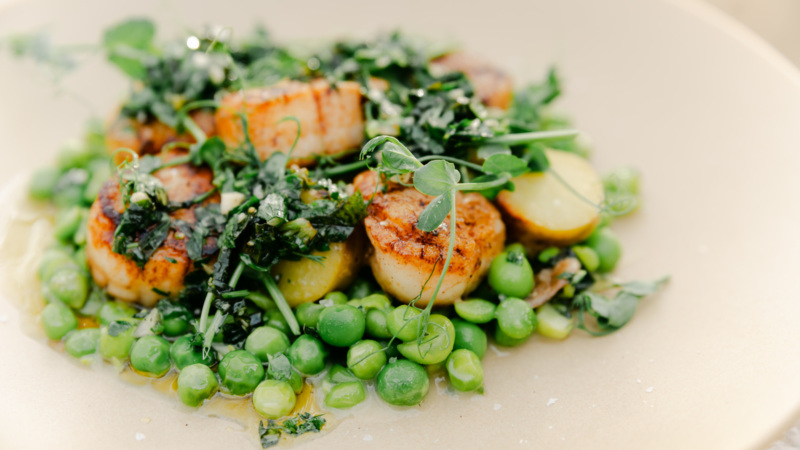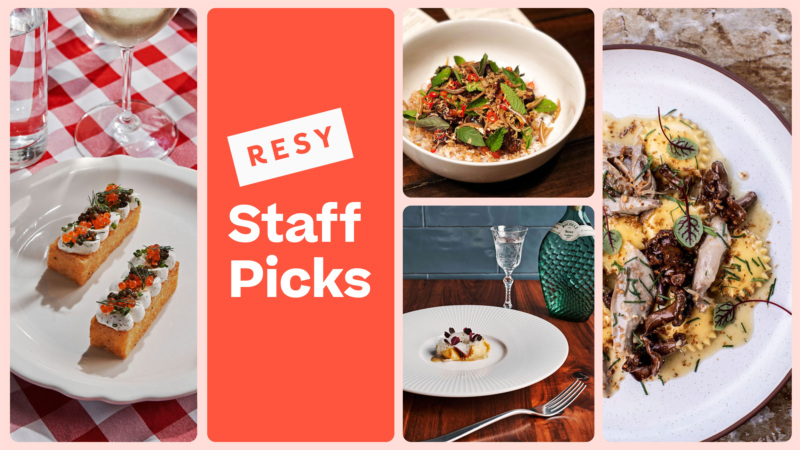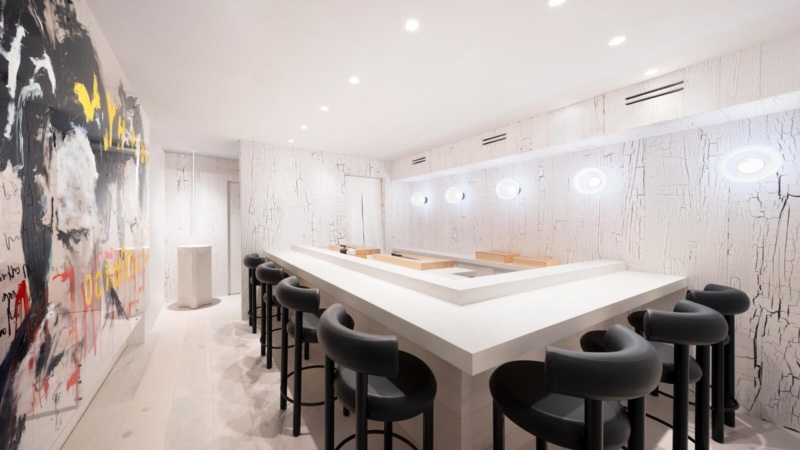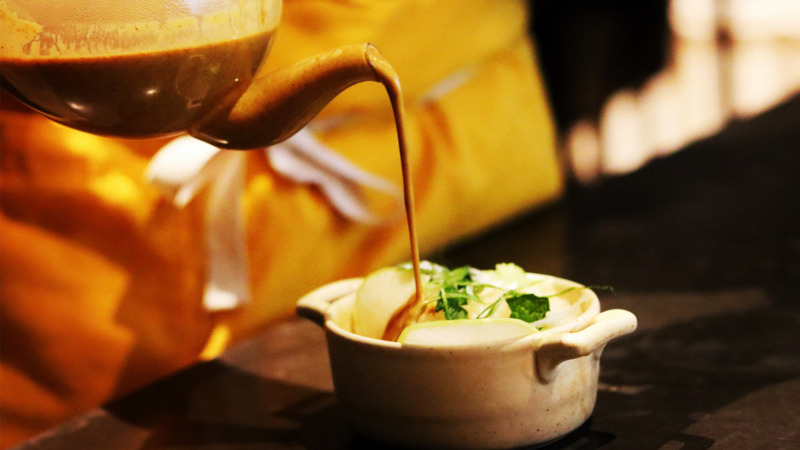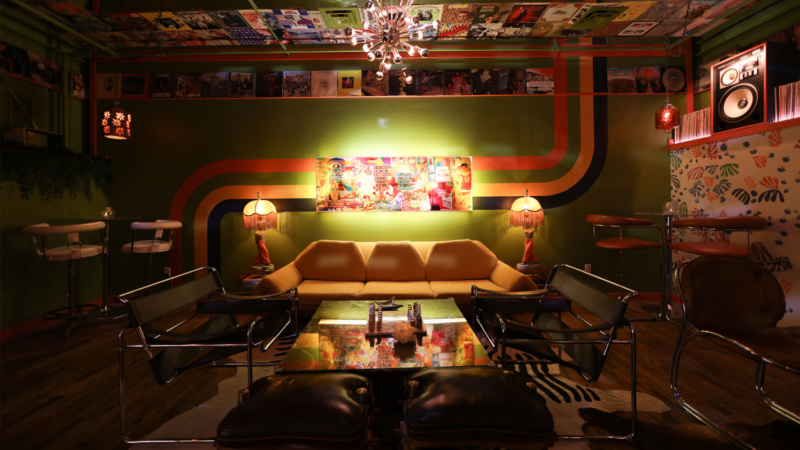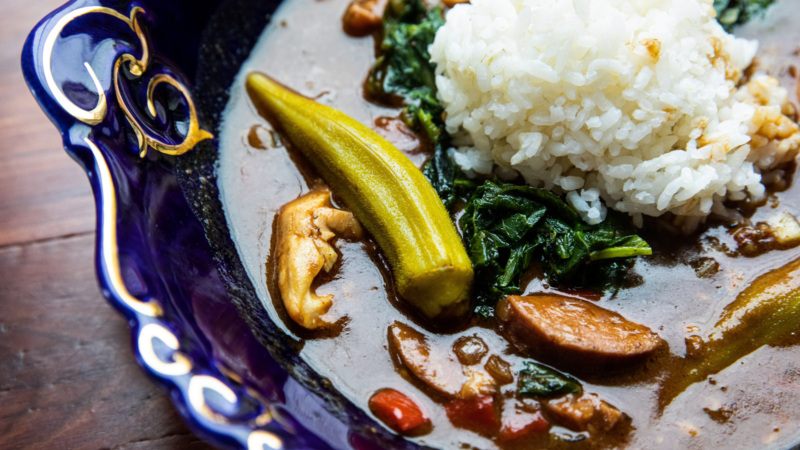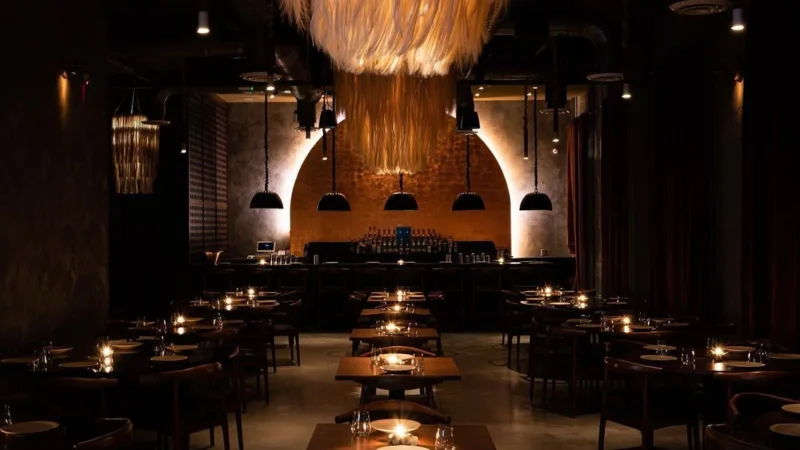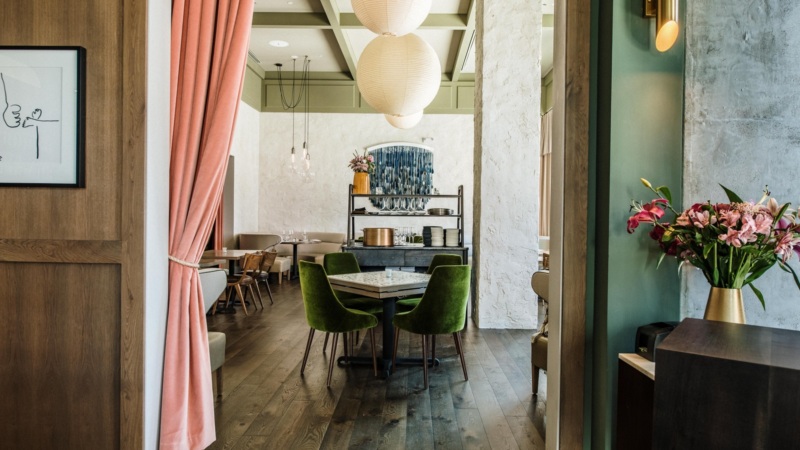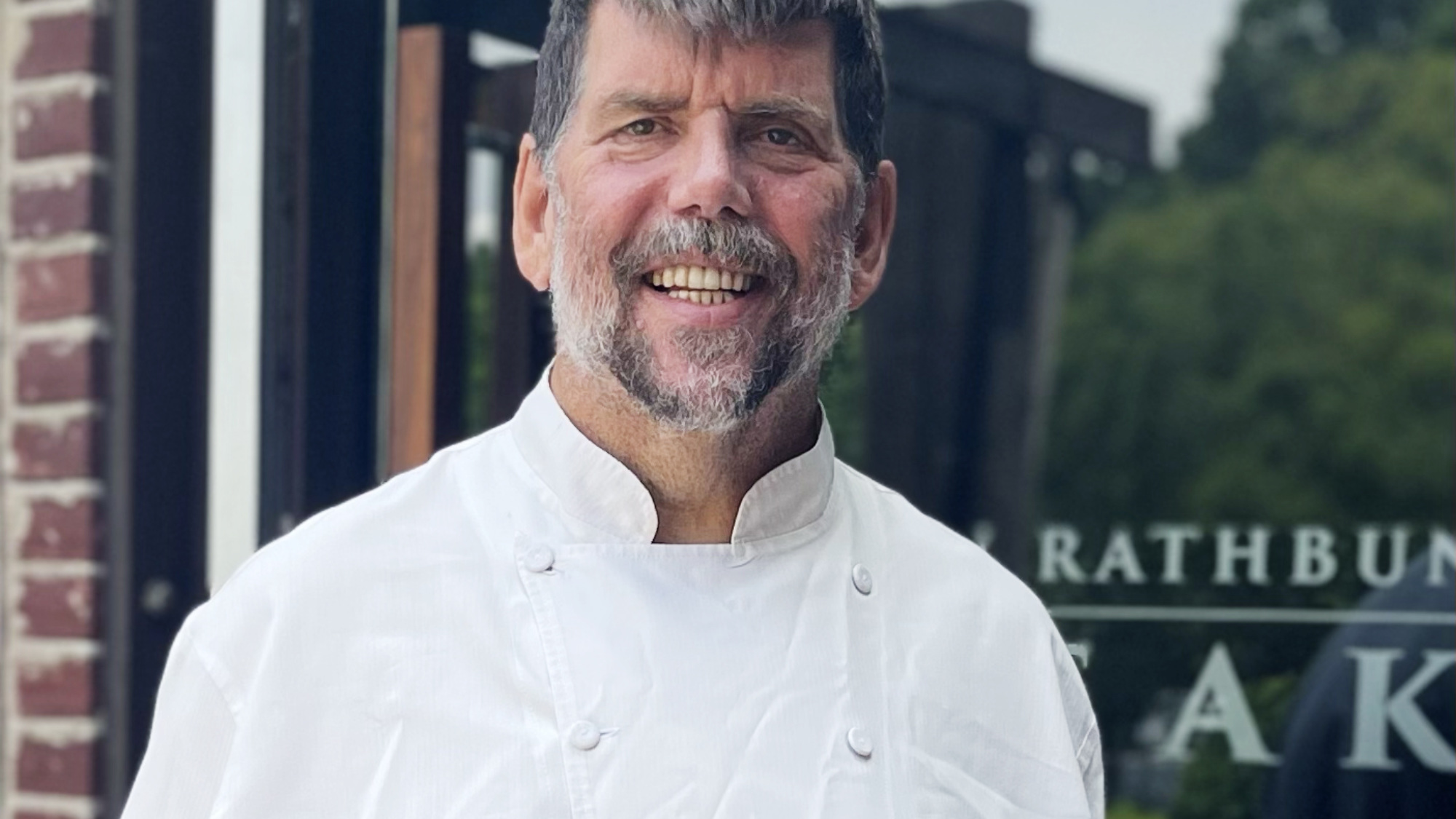
Kevin Rathbun Thinks Fine Dining Is Doing Just Fine
For most Atlantans, chef Kevin Rathbun needs no introduction. The restaurateur’s 45-year career has been successful by those traditional if perhaps less flashy metrics — like longevity and consistency. And he has established himself a loyal fan base among both customers and the restaurant industry, where he’s known as a chef’s chef. These are just the sort of traits that don’t make for news these days, but do make for a long and healthy career.
There is a reason his name resonates with Atlantans. Rathbun built his eponymous restaurant (his first) on Krog Street before Krog Street Market was even a glimmer in someone’s eye. Before influencers and online reviews, Rathbun’s flagship restaurant remained at the top of all the superlatives. And his successes did not stop there. After came Krog Bar, modeled after tavernas in Spain, Kevin Rathbun Steak, and KR Steakbar.
Rathbun’s and Krog Bar closed in early 2021 due to a lease dispute. It had been a long time coming, and the pandemic accelerated the timeline. With his first two restaurants closed, Rathbun redirected all of his energy toward his successful steak-based spots. With its tony patio facing the pedestrian-filled Atlanta Beltline, Kevin Rathbun Steak continues to be a place where steaks, seafood platters, and icy-cold martinis reign supreme. KR Steakbar, which Rathbun modeled after Miami Design District mainstay Michael’s Genuine, is another feather in his cap, where the service is the kind that anticipates everything you need before you know it, and the food is impeccably executed.
Given his years of success in the restaurant space, Rathbun knows how to set oneself apart from your competition, even when doing a similar sort of restaurant. We spoke with him about his storied career, why he closed his restaurants, how his group weathered COVID, and where the restaurant industry is headed.
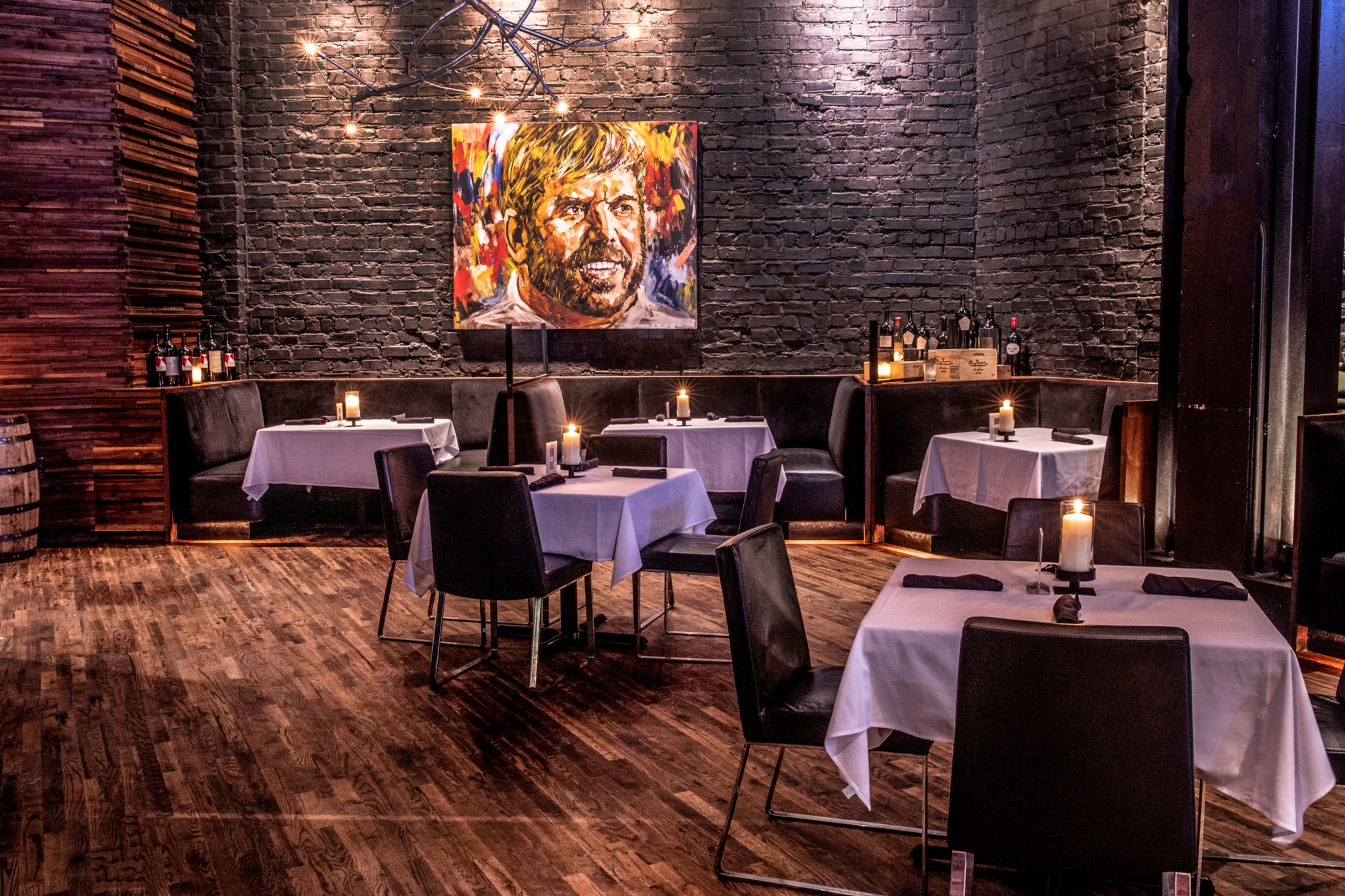
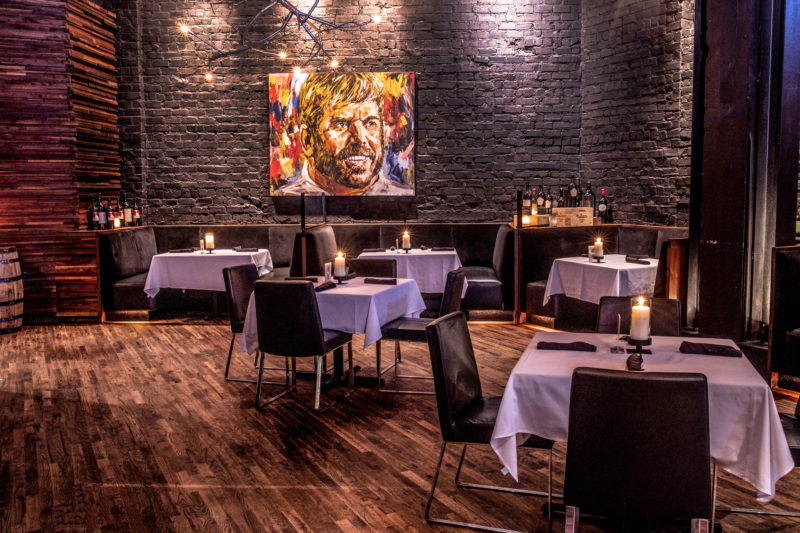
Resy: When you set out to build your restaurant group, what were your objectives?
Kevin Rathbun: I’ve been doing this for 45 years and always wanted my own restaurant. I worked for other people for 28 years. I’ll spare you the gory details, but I had to try it on my own. With Rathbun’s, that was in 2004, in a neighborhood that felt like a war zone at the time. That’s the only thing I could afford to redo, and I prayed people would come. Sotto Sotto was open, and Fritti hadn’t opened yet. Shaun Doty had a restaurant, and Wisteria was there, but they weren’t down in that cut. It was desolate. The whole area where Barcelona Wine Bar is was office buildings. I figured if I could get into something that didn’t cost me a lot of money, I’d make it work, and it worked.
Liz Lapidus Public Relations was in the little building next to me where Krog Bar would eventually be. I was in Spain doing a chef deal on a cruise and went to Malaga. I loved Malaga, went into these bars, and said, “That’s what that’s going to be.” So, long story short, I made that like a real tapas bar.
KR Steakbar’s been open for 10 years. I bought some furniture from the Miami design center for my home. I walked around the corner, and there was a line out the door at Michael Genuine Food and Drink. I had lunch and thought the place was awesome. I went to ADAC (Atlanta Decorative Arts Center) and asked them if they were interested in doing a restaurant there. The lady said, “We’ve talked about it, but nobody’s ever really come through. Let’s make a deal.” I like off-the-beaten-path places that nobody would think about. I can get an occupancy rate that works for the business side. I could be on the corner of Piedmont and Peachtree, but the rent’s three times as much, and the occupancy rate is crazy. You have to do a lot more volume to sustain that.
I’ve been a chef all my life, but I’m also trying to make ends meet and doing the right thing to ensure my people are taken care of.
Why did you close Rathbun’s and Krog Bar?
In 2020, I sat down with the people who bought the Stoveworks for the fourth time, because it’s been sold three or four times. And they came to me saying, “We’d love to have you, but we’re going to tear down Krog Bar. It will be Steps, and your dining room will go away. You’re going to have to put some capital expenditures into it.” And they were going to double the rent. So then COVID hit, and I got out in April of 2020. It was probably the best thing that ever happened.
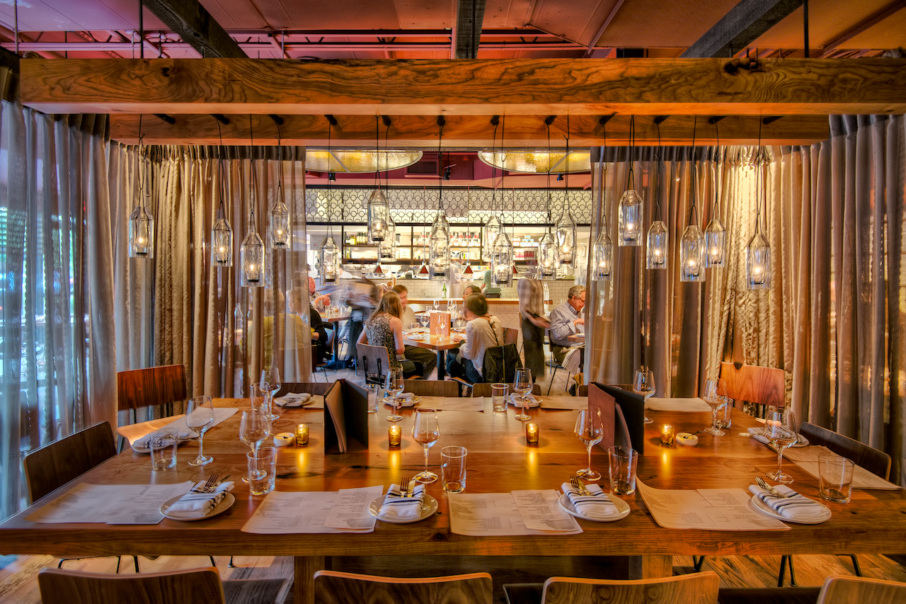
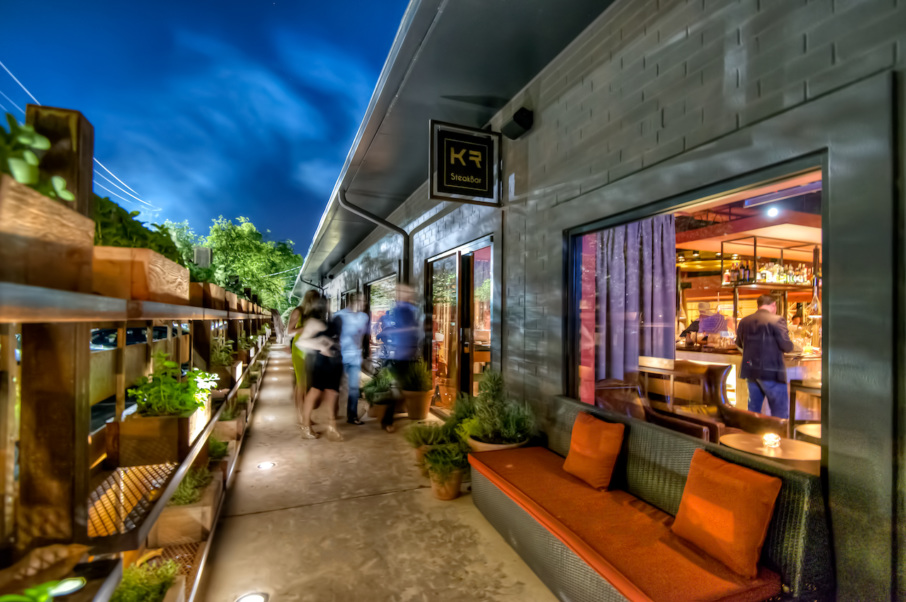
How did COVID impact your business?
By March 15th [of 2020] we shut down everything. I was like, oh my goodness, what are we going to do? How are we going to do it? Are we going to pivot? We’re a $100 average check. Are people going to buy to-go from us? Is it that kind of restaurant? None of the places are open for lunch, so we weren’t looking for that business. We opted out of any kind of to-go.
I didn’t want to pick and choose who wanted to work and who didn’t want to work. I said, “Guys, everybody stays home. We’re going to get through this.” Maybe two months and three weeks, we opened back up to 50% capacity. We made ends meet. We took half the tables, chairs, and bar stools out. We did a lot of outdoor stuff, put up tents, and did some outdoor seating.
Number one, we had to hire everybody back, so 99% of the people came back. We did gift certificates while they were down. We raised $150,000 from our guests, and I gave all the employees that money. This will not last forever. It’s a dip in the radar. Whether World War I or World War II, everything will come back sooner or later. So you have to hang in there.
I think what we did made me pay more attention to my hours. I closed on Mondays. Instead of being open six days a week, I was open five. I didn’t incur any overtime. I talked to my vendors, and I got close and detailed with organizing and ordering and cost of goods on hand. There was a time during that where they were only delivering like three days a week. And then they upped their minimums. I had to get my car and fill the car up with stuff quite a few times. But you pivot, right?
There were so many things you had to do at that time. And then I had to close down a couple of times because I had employees get [COVID] and had to spray the whole place and clean it.
We’re trying not to take advantage, but we’ve also incurred a lot of costs. High prime meats went up 40%. You got to lay that off a majority of it to survive. People are coming every night, filling the house. But you have to pay attention. Some menus have to have things on there that not all people can afford to buy, but you can’t be priced high on every item. We listen to our customers. We listen to the staff.
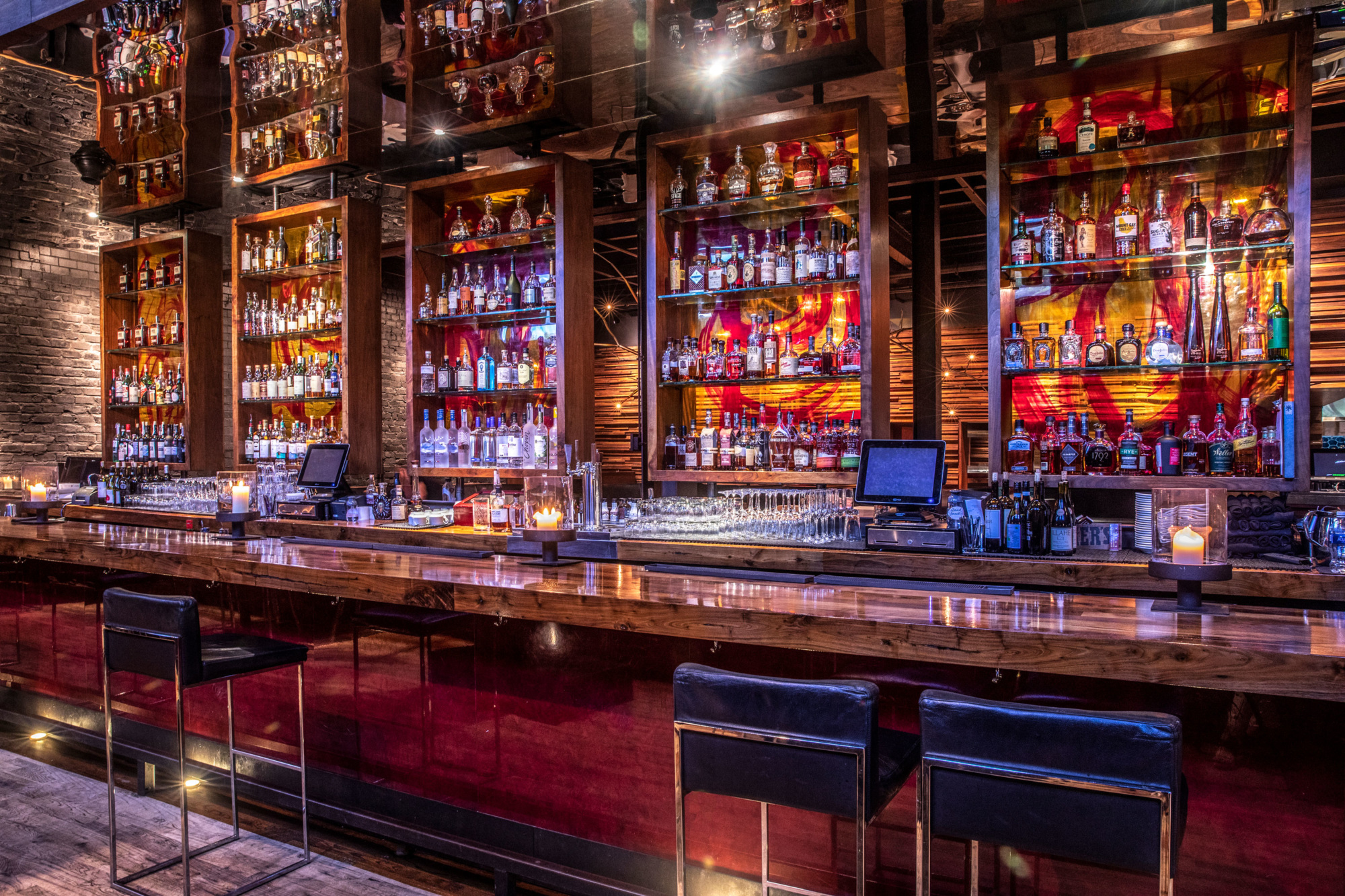
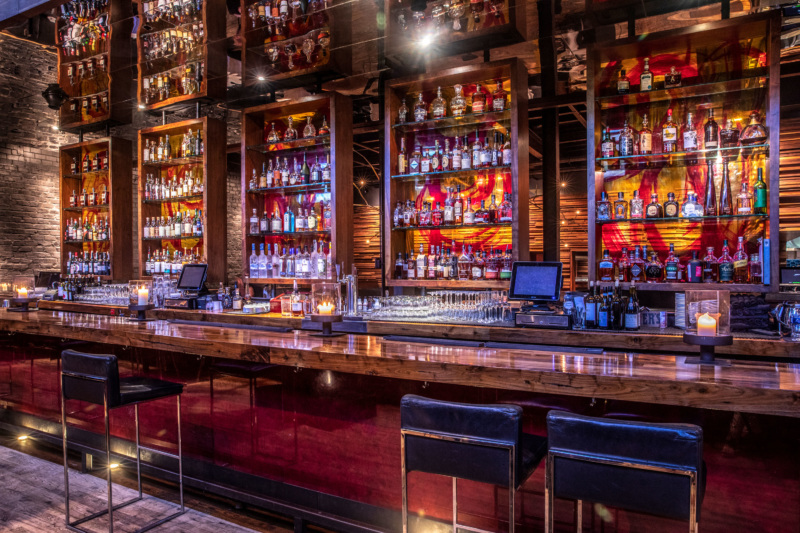
Did COVID change the way you felt about hospitality?
Not really. I think you had to up your game in hospitality. I’ve always been hospitality-plus. It comes from my background with my parents. My brother is a chef. Hospitality is trying to make people happy, and we try our best to make people feel like they’re in our own homes. That’s the goal. If you’re in the restaurant business, that’s what you do. It’s about people serving and doing it with a smile, integrity, and goodness. It didn’t change my feelings about hospitality. It made me feel like I had to be better.
Number one, you have to have great food. Number two should be number one: You should have impeccable service. A lot of people come back for good food, but if the service sucks, they’re not coming back. That’s kind of how I think. Now that I’ve gotten a little older, I don’t do it as much anymore, but the other night I was in the dining room, and I probably touched 90% of the tables: “How are you guys doing tonight? How is everything? Did you enjoy yourself?” I tell my people, anybody that has a problem, get me.
Many chefs who get a lot of attention forget one thing: humility. It’s easy for me to go out and say I’m sorry from my heart. And say I recognize that we made a mistake, or I made a mistake. The fish stinks from the head, and my name’s on the front door. No matter what happens, whether the valet screwed up, we had a surly-ass hostess, your waiter forgot to put your order in, or we didn’t have the right vintage on the wine, or there was a hair in the food, God forbid.
My mother was a maître d’ for 50 years, and I grew up in the restaurant business with her and knew better than most chefs about front-of-the-house and back-of-the-house relationships. Many are technically sound in the kitchen, but they forget that humility piece. I find it an opportunity to make a customer for life when you make a mistake.
When you look around the industry, both locally and nationally, do you think it’s going through any type of shift? It was a hard reset for many. What does the future hold?
Kevin Rathbun: I wish I had a crystal ball. I’ll be honest with you — I think that this whole thing’s a glitch on the radar. It wasn’t too many years ago when everything went fast-casual for a little while. How many years ago was that? 10, 12? Everybody said, oh, fast-casual’s the next thing. Get out of the high-end restaurant business. But listen, there’s a lot of people out there that are financially capable of eating in a very, very, very nice restaurant. And you know what? People want to be served. I don’t think it’ll ever go away.
I think, yeah, we’ve pivoted. It’s very difficult. There’s not a line out the door to get the job anymore. So you have to keep your people happy, you have to keep your people in great spirits, and do a lot of things in-house to maintain what you have. Because people have gone on to other places and done other things.
I think the IT and tech worlds are a significant component of why we’re suffering from what we’re suffering, because people can work at home. If you’re in a restaurant business, you’re in a brick-and-mortar. You got to be there. So those avenues, I think, have kind of changed how people think and how people work. And especially in our business. If you’re a lifer waiter or a lifer cook, or if you’ve been in the industry as long as I have, and that’s what you know, and that’s what you do, and you make decent money at it, you’re going to stay with it. But at a certain point in time, if you could work from home, I don’t know, that changes the game.
But I don’t think the high-end restaurant business will go away. I think there’s room for maybe not as many. But to get served, have a great meal, and be fawned over and taken care of. And like I say, you gotta win those people every time. We like people that come back twice a week, twice a month, once a month. We see them on their anniversaries, their birthdays. We do a lot of due diligence and try to maintain our friendships with them.
And believe me, there have been times where we’ve had a guest that’s been to a restaurant 25, 30 times, and they might have a hiccup. Again, an opportunity. That’s when I apologize from the heart and say, “Listen, man, dinner’s on me. What else can I do? Let’s fix this.”
Like, let’s fix this now so you don’t go right to a Yelp review. You don’t go write it up. You don’t hide behind the keyboard, telling people what you think without at least allowing me to take care of what was at hand, right? Because some people don’t know how to express themselves at the table.
Regarding trends, there are four new omakase spots in town at $200-plus before alcohol. Do you feel like people want to spend? Is this supporting what you’re saying?
Kevin Rathbun: Absolutely. After COVID, people are out in droves. I was watching the news today about people traveling, it’s like 2% higher than 2019. People want to get out. They want to be out in it. Who wants to be cooped up for two years like we were and have that kind of thing over our head? I think it’s changed a lot. I used to talk about it every day, and now you don’t see anything. They don’t even talk about it.
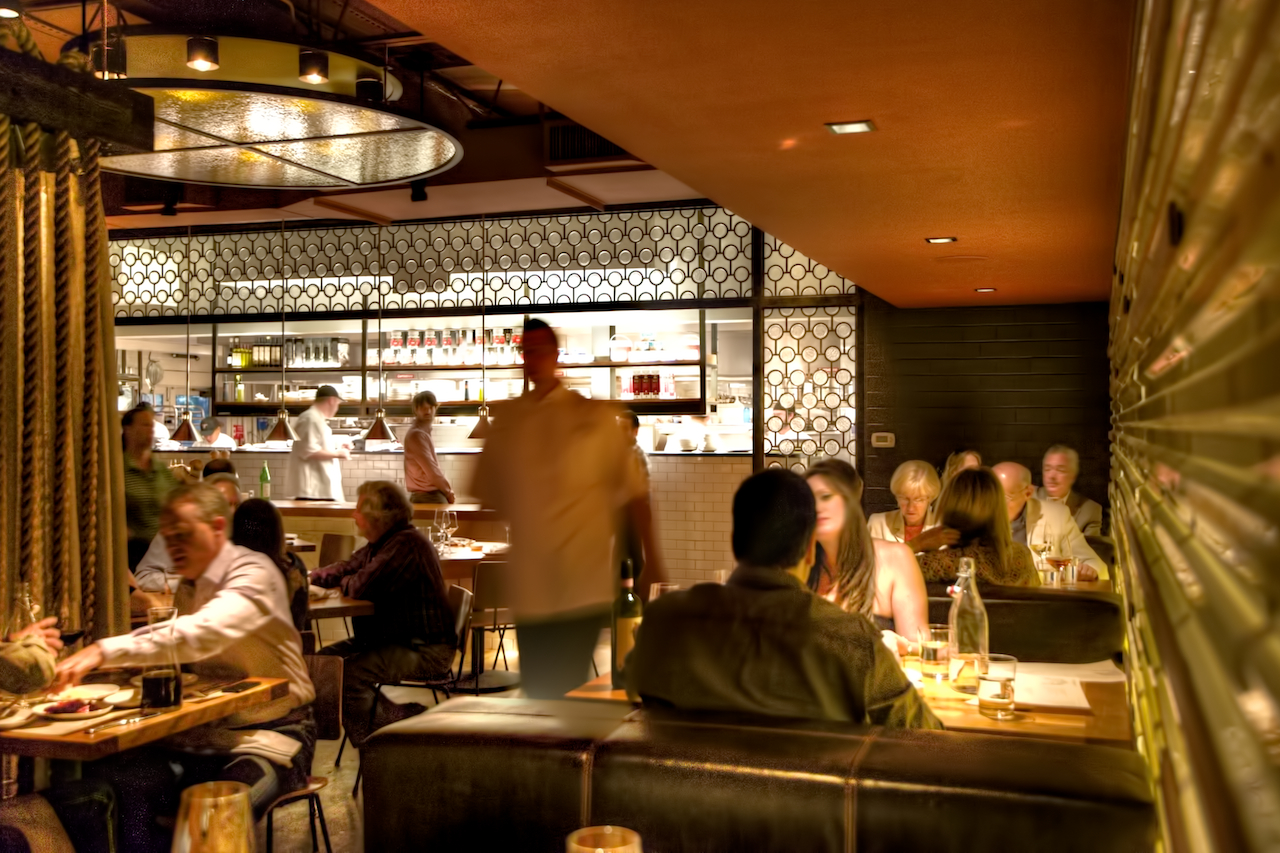
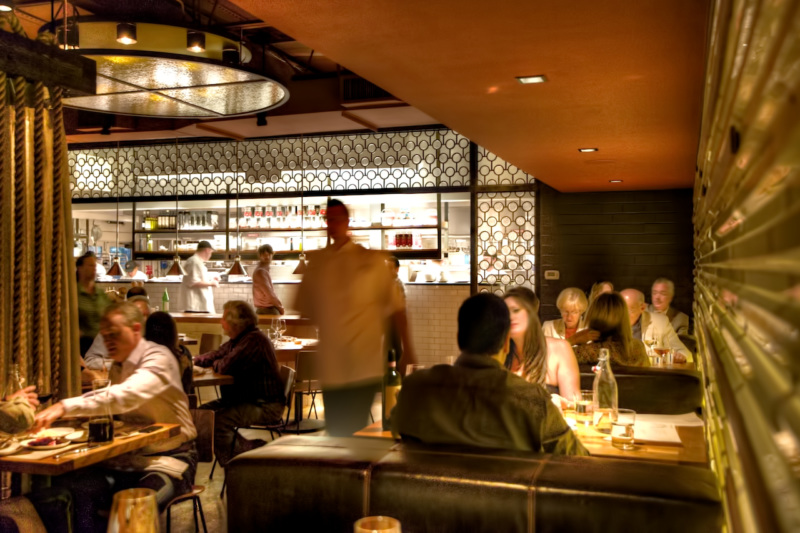
For a long time, the trope has been that Atlanta’s not a fine-dining town. But given how Atlanta has changed, and with the movie industry digging in deeper, do you think we might become a fine-dining town again? Does it matter?
I think the fine-dining scene could return in droves again. Look at the people who have lasted. Buckhead Life is a good example. They’re an institution, and they’re fighting the same battles. But they build beautiful restaurants, and they’ve stood the test of time. Bacchanalia, same thing. She’s moved twice. She’s moved twice and still stands the test of time. Aria’s been open for a long time.
I’ve been offered spaces in hotels dozens of times. That would be a great opportunity for me on the business side, as it gives me the occupancy cost. But nobody’s going [to those]. Who wants to be in a hotel in Atlanta to eat dinner? We’re not New York yet, and we’re not Chicago yet. We don’t have that walking density, although it’s coming — Midtown’s popping off. You could park somewhere and go to 10 places.
I don’t know about you, but I could take a food hall. Everybody’s got to do one. George Banks will tell you what I told him about that long ago. I gave him the idea for Krog Street Market, and he’ll let you know. A few had popped up, and I thought if I could buy a piece of property like that. There’s nothing like that in Atlanta. I told George and the group he had worked for, and they bought it, and they did it.
Is there anyone else you credit with your success?
The woman behind the man is a very true statement in my case. My wife Melissa has been my biggest supporter for 34 years. Not only has she supported me in my journey, but she has also been an integral part of the business. She worked alongside Ella Brennan at Commander’s Palace in the executive office. She ran the Mozzarella Cheese Co. for Paula Lambert for many years in Dallas.
Her outstanding accounting abilities for all the restaurants have kept us whole in many ways. Her ability to nurture our restaurant family is another feather in her cap. And Melissa’s effortless ability to make customers feel at home is second to none.
Discover More
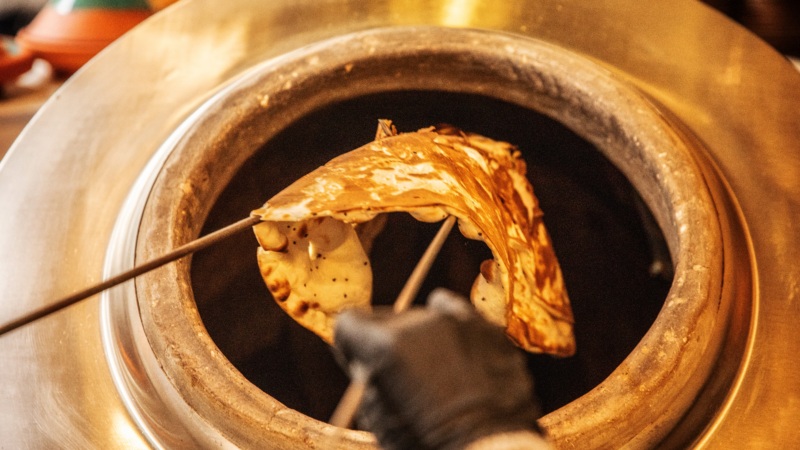
Stephen Satterfield's Corner Table











